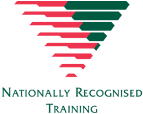Launch your career as a school based Assistant Educator
Do you have a passion for education? With a CHC40221 Certificate IV in School Based Education Support, you will be qualified for a variety of positions where you can provide one-on-one classroom-based tutoring to students in need of additional support.
This qualification will allow you to take on a more instructional role to facilitate student learning under the supervision of a teacher or other education professional. Regarded as a fairly adaptable role, education support workers generally enjoy a flexible work schedule that you can tailor around your family and other commitments.
The CHC40221 Certificate IV in School Based Education Support will give you the expertise required to supervise students within a school based setting, apply a range of principles and processes to facilitate student learning and comply with legislative, policy and industrial requirements in an education environment. You will also gain the skills and knowledge to provide support to children and teens who face a range of learning challenges that prevent them from thriving in the classroom.
If you are a patient, friendly and reliable person who can offer students and their families sensitivity and support, you will thrive in an education support role.
To complete this course, you will need to complete the online theory along with 100 hours of classroom-based work in at least one Australian school. Upon graduation, you will be qualified to provide a stimulating, safe and meaningful learning environment as a Teacher Aide, Education Assistant, or Additional Needs Teacher Aide.
The CHC40221 Certificate IV in School Based Education Support is a Nationally Recognised course.
Course Outcomes
Once you have completed your school based education support course, you will be qualified to apply for an exciting variety of education support jobs in both the private and public Australian school systems. The CHC40221 Certificate IV in School Based Education Support is nationally recognised, and the skills and knowledge gained from this qualification will certify you for a multitude of classroom roles. Here are some examples of employment opportunities you will be eligible to apply for once you have completed this course.

Teacher Aide
A Teacher Aide supports classroom teachers with several non-teaching duties, such as preparing resources and teaching materials. Their duties include supervising students, monitoring their behaviour, and undertaking logistical tasks to ensure the efficient operation of the classroom.

Teacher Assistant
Working under the guidance of classroom teachers, you will reinforce student learning by providing additional support to individuals or groups of students. As a Teacher Assistant, you will perform vital tasks to ensure the smooth running of the classroom, including performing administrative duties, creating lesson plans, preparing lessons, ensuring each student receives adequate educational support and documenting their progress.

Education Assistant
You will perform tasks in various classroom settings to support teachers in providing children with education. As an Education Assistant, you will be responsible for such duties as preparing the classroom for learning activities, providing students with one-on-one learning support and giving feedback on student conduct.

Special Needs Teacher Aide
Plan, prepare, and deliver individual support for students with additional learning challenges as a Special Needs Teacher Aide. The CHC40221 Certificate IV in School Based Education Support will equip you with the skills to collaborate with classroom teachers for the benefit of students with special needs, ensuring their education is always a priority.
Certificate IV in School Based Education Support
Delivery structure
Theoretical elements:
Study the theoretical elements of this course anywhere and anytime through our online learning platform.
Practical elements:
Students must complete 100 hours of work placement. The student must be supervised during their placement by a teacher or other education professional.
Up to 18 months
Study load
- 17 course units (note: HLTAID012 must be completed with an external provider)
- Submit 1 course unit every 5 weeks to graduate in 18 months

Delivery structure
Studying the Certificate IV in School Based Education Support with Foundation Education is flexible and can be tailored to suit your needs. The course is broken down into two parts:
1. Theoretical
Study the theoretical elements of this course, anywhere and anytime through our online learning platform.
Components
17 course units to complete.
Completed online, at your own pace.
Resources required
To successfully complete this course, it’s essential that your placement provider has the necessary equipment, resources and/or documentation. For detailed information on these requirements, please reach out to our friendly Career Advisors to obtain a copy of the complete list.
For the online part of the course, you’ll need regular access to:
Computer: Laptop or desktop computer with working speakers or headphone points.
Internet: High-speed internet such as Broadband or ADSL, T1/T2, fibre optic (Dial-up access is not recommended).
Windows: Operating system – Windows 8 or above.
MAC: Operating system - OS X 10.14 Mojave or later.
Internet browser: Google Chrome, or Microsoft Internet Explorer 11.
Software: Flash, Adobe Reader, Microsoft Word (or Open Office which is free to download).
Office equipment: Printer and scanner to print and upload some of your assessments.
Mobile phone with video capability or video camera: Some assessments in your course may require you to take and submit videos of you undertaking tasks for assessment.
2. Work placement
For the completion of the 100 placement hours, students must have access to a classroom environment catering to primary and/or secondary students within at least one school within Australia. The student must be supervised during their placement by a teacher or other education professional.
Components
Students must apply for their Working with Children Check at course commencement.
Where required, we may assist you in identifying work placement options.
Units
Achieve your qualification by completing the following units of competency:
CHC40221 Certificate IV in School Based Education Support
Cost and payment
You can pay for your course upfront via VISA/MasterCard or a bank deposit. Alternatively, we offer instalment plans that can be paid over several weeks or fortnights.
Your course fee includes
Delivery and assessment of your qualification
Study materials (including all resources)
Ongoing support from our Education Team
We offer two payment methods
Full fee upfront
Instalment plans
For more information about the course costs, please call us on 1300 616 197.
You May Also Be Interested In
CHC30221 / CHC40221
Certificate III in School Based Education Support and Certificate IV in School Based Education Support
Launch your career in a rapidly growing industry and prepare yourself with the necessary skills and training required to work in school based education support.
CHC30221
Certificate III in School Based Education Support
Prepare to launch your career in a growing industry by gaining the necessary skills and training to work as a Teacher Aide or Teacher Assistant with the Certificate III in School Based Education Support.
CHC30121
Certificate III in Early Childhood Education and Care
Gain the skills and experience you need to begin a fulfilling career as an Early Childhood Educator and take advantage of the growing demand in this field.






